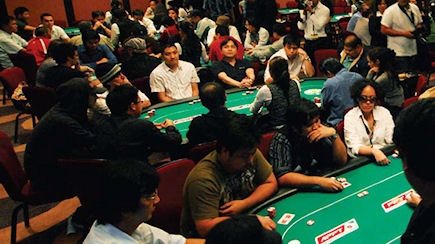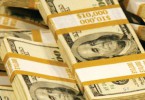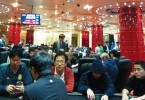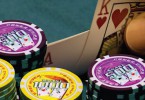This article first appeared in the Mar/Apr 2010 issue of World Gaming magazine.
Poker has already taken the world by storm, and its final destination is Asia. It is big business, and its stars are as well-known as elite athletes and pop stars throughout most parts of the world. Only ten years ago, poker was a game still in decline.
It was still a part of American culture, but it was a game that was played at home over a few beers, and by a small group of professionals in places like Las Vegas and Atlantic City. The glory days – where the Wild West was carved on the back of a bottle of whiskey, a six shooter and a deck of cards – seemed to be a long distant memory. By chance, however, the moons aligned for the game. Poker was catapulted into the mainstream, rewriting the history books to include the modern day gold rush that is poker.
The first and most important thing about poker is that it has many elements that make it such a great game for the player. The gambler loves poker as the action is relentless, and you get to compete against other players. It’s one thing to take money off the casino, but it is even more of a challenge to win it off a fellow player. The game also attracts non-gamblers, who view the game as a skill-based pastime. Many poker players would argue that the game – if played properly – is a sure bet. That’s not to say that a good player will win every time they play; but they say that if you are good at the game and consistently do the right thing, you will always win in the long run. Tournament poker is also considered by many as a sport. It’s not a test of athletic prowess, but it is certainly a competition – and has all the elements of competitive sporting contests.
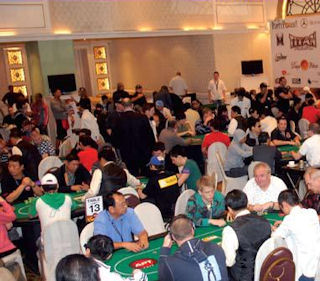
Only ten years ago, poker was a game still in decline
The other thing that has helped the game dramatically was that the game was perfect for the internet. People could play poker in the comfort and safety of their own home. Many poker players still prefer the challenge and excitement of live poker; but others who enjoy the game don’t want to face other people across the table in a live environment. Internet poker is huge business, and the leading companies are estimated to be worth billions of dollars. Recently the world record was smashed at ‘PokerStars‘, with over 300,000 people playing online simultaneously. That is just one of the sites. It’s not inconceivable that a million players could be playing online simultaneously at absolute peak periods. These figures seem unbelievable, but sit up and take notice because they are true.
Internet poker was the tool that helped the boom, but it certainly wasn’t the spark that ignited the explosion. There are a few events that will go down in the history of poker, which will be considered as defining moments. In 2003, an American bookkeeper from down south played an online satellite to win his way into the World Series of Poker. It cost him less than US$50, and he won the dream holiday of a lifetime – and took his place amongst the world’s poker elite in the US$10,000 buy-in Main Event in Las Vegas. After five days of play the young man was the only one left standing, and he had instantly become a multi-millionaire. His name, if you can believe it, was Chris Moneymaker!
The second big thing that happened was that some crazy person in the UK thought that poker might make good television. A show called Late Night Poker was getting incredible late night ratings, and gained a cult following. The US had dabbled in poker television; but then one year an ice-hockey players’ strike left ESPN with a huge hole in their programming to fill, and the unthinkable happened: in a moment of desperation, they thought they might be able to peddle poker – to keep at least someone from turning to another channel. The hockey would never get another look in! For some reason poker makes nail biting television, and Americans went crazy for it. Real people were being filmed, playing for life-changing amounts of money. This created raw, pure emotion – and that is something that has always made good television. This is why celebrity poker is far less popular than watching real poker players, because the game is at its best when the money is real and the outcome means everything to its participants.
The boom had come, and it had started in America as the country already had the poker culture bubbling under the surface. It didn’t take much to drag it out, dust it off and repackage it for a 21st century audience. The cowboys of the Old West played poker; the hustlers and gangsters of the 1920s played poker; and everyone from Presidents to college kids to blue collar workers had experienced a Saturday night poker game in some form or another. After 2003, poker players were the new rock stars. People would line up for hours to get an autograph of Phil Ivey or Daniel Negraneu. Players like Scotty Nguyen, Johnny Chan, Doyle Brunson and Phil Hellmuth were ready made stars: they were smart, had personality, and were marketable. The other great thing was that poker was obtainable for anyone who knew the very basics of the game. Pay the entry fee, take your seat, and you could mix it with the best – if your skill, nerve and luck was up to it.
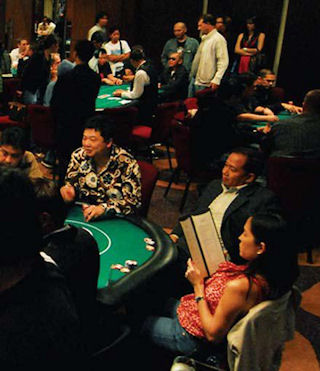
Tournament poker in action
Great Britain was certainly the next in line, and they just worked on the success that Late Night Poker had already created. The English were big gamblers, and poker had been featured in blockbuster movies like Lock Stock and Two Smoking Barrels. All of a sudden there was nothing cooler than playing poker. They also had an excellent array of fast-talking, sardonic players who offered a uniquely British style – and helped to displace any misconception that it was merely an American pastime. The next two places where the game took off were in Scandinavia and Australia, as both places had highly skilled players who achieved excellent results on the world stage. The rest of Europe and South America would soon follow, and these two large market places are behind the most recent surge in numbers over the last couple of years.
Napoleon once described China as a sleeping giant – and this was not a criticism, but a statement that the West didn’t understand Asia. Asia has again been earmarked as the sleeping giant of poker, but it will happen when Asia is ready to embrace it – not when the senior players in the poker game want it to happen. It is not a question of ‘if’ – it is only a question of ‘when’. There are some problems that the game has faced in the region, which has helped to slow the process. Firstly, there are many countries in the region that have very strict gaming laws, which make it difficult not just to play the game, but to promote it. This has meant that it hasn’t made it onto mainstream television, and it has made it hard for internet poker sites to penetrate the market.
Macau has embraced the game since 2007. In the Philippines where the restrictions aren’t as onerous, the game has flourished. Japan and Korea have quite tough restrictions on poker. The Japanese and Korean people love the game, but politicians can be scared of large numbers of people who want change.
There are always big turn-outs of Japanese and Korean players at international tournaments, so change is inevitable. The new Singaporean casinos have suggested that poker is on their agenda, and again it is only a question of ‘when’ not ‘if’.
There are some big players in the game making moves in the area, which will certainly help the growth of the game. There are two major tours that are going head-tohead in the region, which can only be good for the game. The first is the Asian Poker Tour, which has completed its third season; and its fourth will kick off later this year in the Philippines. They have had some excellent tournaments throughout the region, and in August last year held the inaugural Battle of the Nations tournament, which saw fourteen international teams fight it out for the trophy. Asian countries such as China, Japan, India, Korea and Hong Kong went head-to-head against Western countries such as the United States, Great Britain and Australia. The Korean team was victorious – in another excellent boost for the local industry.
The other tour is the Asia Pacific Poker Tour, which has held tournaments in Macau, Cebu, Manila, Auckland, and Seoul – with its grand final in Sydney every year in December. In Macau the APPT has made the impressive Grand Lisboa its home, and they set the record for the largest ever tournament in Asia in September last year. The Macau poker scene is really starting to take off, with four major casinos opening card rooms – Grand Lisboa, StarWorld, Wynn and the Venetian. The Poker King club at StarWorld held its first ever tournament in January – the Asian Poker King Tournament (APKT). There will be more tournaments by the APT, APPT, APKT and possibly new players yet to emerge. Tournaments appeal to the players, as they can turn a small investment into a huge amount of money. There will also be more casinos offering round-the-clock cash games, which will continue to become more popular as more and more locals learn and embrace the game.
The great thing about poker is that it is a game of skill, with a gambling element. Baccarat is certainly the game of choice in Asia at the moment, but there are elements of Texas Holdem Poker that will appeal to the throngs of baccarat players. It is also a game where you get to actually touch the cards – something baccarat players love to do. You don’t get to squeeze them, but you certainly get to be a part of the game. You can’t compare poker to baccarat when it comes to pure gambling. Baccarat is a game that thrives on its simplicity and basic pure ‘gamble’. What poker can do, however, is that it can turn you into a household name overnight, if you are lucky and good enough to win a huge tournament. The best poker players in the world do nothing else but travel around the world, playing poker at the expense of their sponsors. This is something that baccarat can never offer their players. Poker can be marketed as a skill-based pastime. With poker, the more you work on your game and practice, the more you will improve.
Some of the best poker players in the world are Asian. The majority of them are Asians who have lived most or all of their lives in the West – but make no mistake, this will change in the very near future. Poker needed a home in the region, and Macau has taken up that mantle. The fuse has been lit – and the explosion is not very far away.

